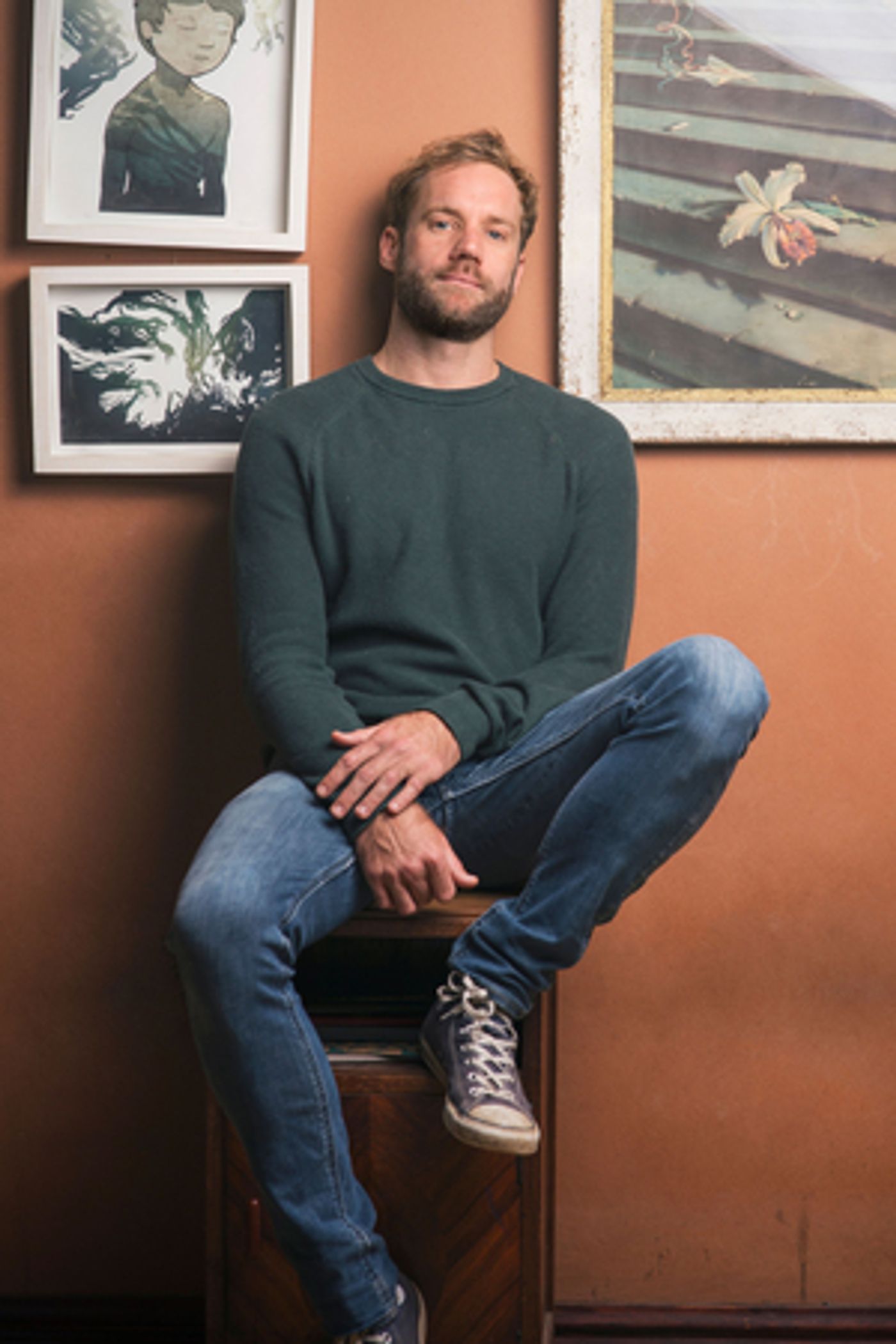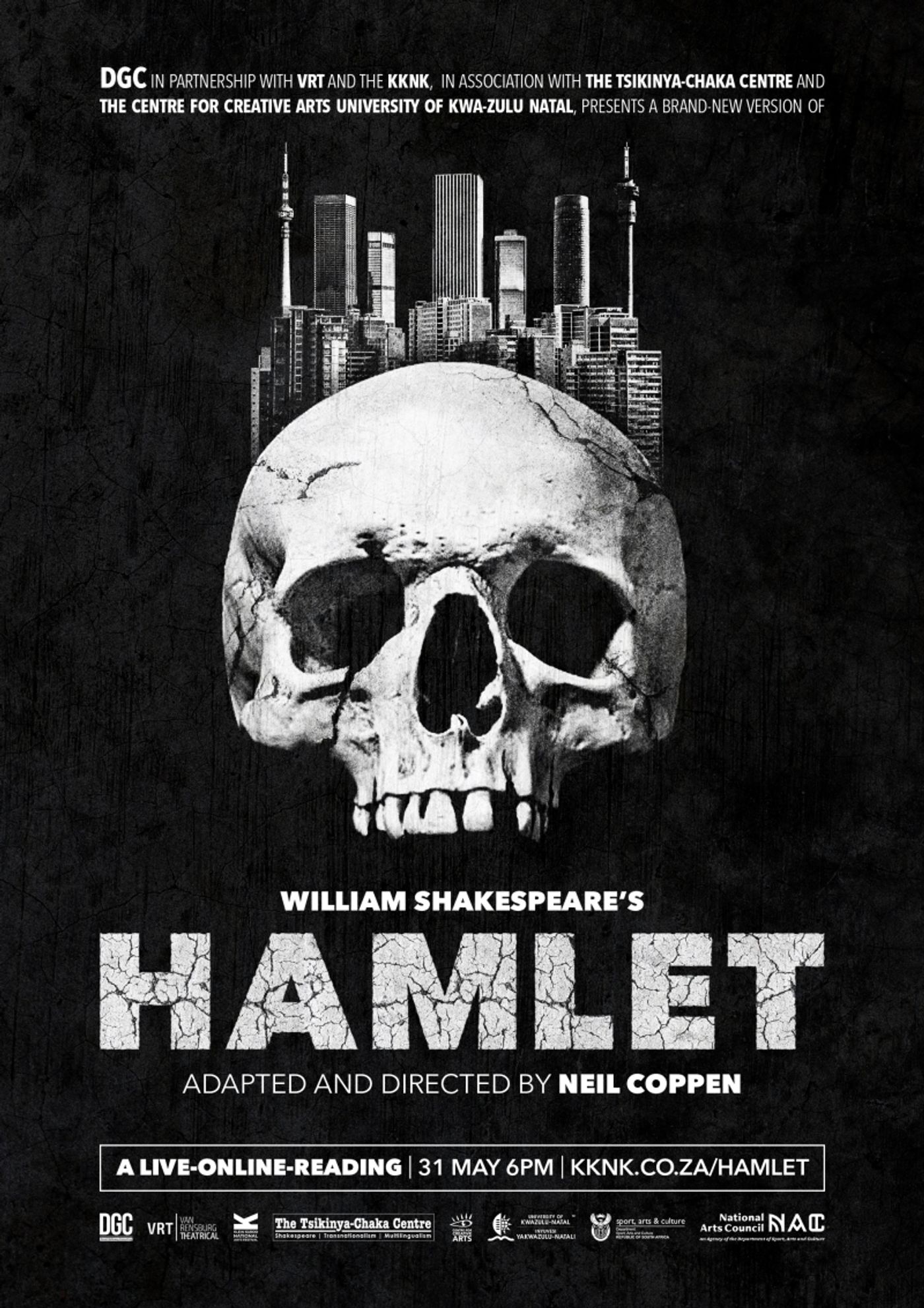Interview: Neil Coppen on Adapting HAMLET for Live Online Reading
Award-winning team behind Shakespearean tragedy goes virtual

From casting for the Fugard stage to fitting faces into Zoom frames, Neil Coppen has been on a journey with HAMLET since early 2020. The prolific director discusses with BroadwayWorld his experience so far.
BWW: Let's talk HAMLET! When did you first encounter the play, and what stood out about it for you?
Neil: My own journey with the play began in the early 2000s when I played Hamlet in a production mostly performed to high-school kids who were studying the text and I've loved the play ever since. Looking back on many of the plays I've written over the years, I can definitely track the influence HAMLET has had on me as a playwright. I think it's perhaps strongest in one of my earlier works ABNORMAL LOADS pays frequent homage to the themes, characters and concerns of HAMLET.
BWW: Can you tell us about the Fugard version of the play you were about to begin rehearsing before the pandemic hit, and how it has evolved into this online reading?
Neil: In early 2019, I was approached by Greg Karvellas to see if I would be interested in directing their first Shakespearean production. When Greg asked me to consider an adaptation of HAMLET, I immediately jumped at the opportunity. In early 2020 we were nearing the final stages of casting and pre-production before the pandemic caused the Fugard to suspend - and later cancel - its 2020 season entirely. It was devastating! In the interim, I remained in close contact with Buhle Ngaba, who I had invited on as associate director on the Fugard production and we continued having discussion around the play.
Earlier this year I was contacted by my friend Bianca Amato, an incredible South African actress, who had returned to SA from an illustrious acting career in New York and was keen to initiate an online Shakespeare Zoom reading platform. Bianca and I were in discussions to try to use my HAMLET adaptation to experiment with on this platform when Daniel Galloway called to say he had managed to raise some funding to support further development on the project. While the funding wasn't enough to help us remount the full production on the stage, we decided to use it to support a rehearsed online reading version of the text and invite back many of the original cast members who had been cast in the Fugard production yet were robbed of the opportunity to play their parts. It seems the theatre gods really did align to ensure this project had some sort of a life after the 2020 disappointment!
BWW: Tell us a bit about your adaption. You mentioned it "focuses on a South African Royal/Political dynasty". Why did you choose this concept as the interpretation?
Neil: I always approach re-imagining a classic text by imagining a sixteen-year old version of myself sitting in the audience and experiencing it. I suppose I set out to make theatre that I hope will excite younger generations (some of whom might never have been in a theatre before) and allow them to develop a life-long relationship and love affair with the medium.
A majority of the play's action takes place within the walls of a palatial Saxonworld mansion and we hope our audiences will recognize the play's central family as one reminiscent of powerful South African political families/dynasties of more recent times. My adaption of HAMLET takes some rather audacious creative and structural liberties and is often anarchic and irreverent in its interpretation. I'm not setting out to placate the Shakespearean purists but rather hoping to offer audiences a fresh new way of seeing and experiencing this timeless text and story. Conceptually and visually I want our telling of this story to locate the audience inside the unravelling psyches and insanities of the plays central characters.
BWW: What were some of the struggles of rehearsing over Zoom?
Neil: We are currently rehearsing around six to seven hours on Zoom every day and often late into the night to factor in the actors who have commitments during the day. Sitting that long in front of a computer and unpacking Shakespeare six days a week can be exhausting for all concerned! There's also a different sort of performance style that the actors have to adjust to; and by this I mean that anything too heightened or theatrical overwhelms the confines of the screen. The Zoom frame ensures that each actor is working in a sort of perpetual close-up throughout the reading, so we are trying to craft more subtle cinematic performances - over grandiose theatrical ones - to suit the medium we are working within. Bianca even coined a new term for the style and we now refer to it as 'Zacting' (Acting for Zoom).
What the online digital process in proving is that it's possible and still hugely beneficial (while challenges of Covid persist) to do this sort of deep analysis, text work and exploration with actors in this format. When (and if) we do get into a rehearsal room in the near future, we will have already benefited from an intensive month together grappling with the text and characters and so despite the frustrations of living inside a never-ending Zoom call, there is also huge value to this process.
BWW: What has been a highlight of working with Buhle and Bianca?
Neil: Buhle Ngaba and Bianca Amato have been working as my associates and guiding much of the process with regards to unpacking and making sense of the text with actors while handling the nuances and complexities of the translation work. They are both such incredible teachers and actors themselves and I've learnt so much from them over this last month.
HAMLET is a complex and lengthy text and so getting a month just to focus on text work and discussion with actors and mentors of this calibre is a blessing, and a process - I believe - that will go on to greatly enrich the final production when it makes its way to South African stages. It's also a wonderful way to honour the incredible vision, time and passion that the Fugard Theatre team poured into making this all happen before Covid wreaked havoc on our industry and, most tragically, the future of the Fugard Theatre all together. Personally, I see this reading as a way to publicly acknowledge the initial vision and support of Greg Karvellas, Lamees Albertus, Georgia Lahusen, Daniel Galloway and of course Eric Abraham, all of whom made this production and process possible in the first place.
BWW: Where do you hope to take this adaption of HAMLET in the future?
Neil: I suppose my bigger dream for this HAMLET would be to ensure that if this is the first production people see on the stage post-Covid, that it's one that energises them completely and serves as a reminder about the sheer potency and power of the theatrical medium. I want audiences to remember what they have been missing out on over the last year while being forced into marathon lockdown Netflix binges!
With regards to this early teaser and online iteration, I hope that this reading helps us drum up interest in the project from producers and theatres both locally and internationally. The hope would be for us to be in the rehearsal room next year but these are still such uncertain times with regards to funding, time-frames and the possibility of working with a company this size in person. So in the meantime watch social media and the press for further developments and updates. I can feel it in my bones that it will happen in good time.
Photo credit: Supplied
The rehearsed reading of Neil Coppen's adaptation of HAMLET will be presented on Monday 31 May at 18h00. To watch the free live, once-off online reading, visit https://www.kknk.co.za/afr/hamlet/. For further information, visit https://www.danielgalloway.com/hamlet2021
Videos

